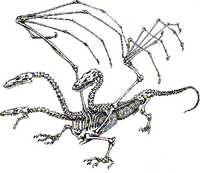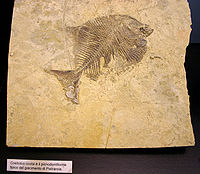Applicability
Applicability is First of the TORI axioms; it specifies the fist property of every scientific concept:
The concept has some limited range of validity, distinguishable from the empty set.
Limited range of validity
The need to declare the limits of validity of a scientific concept is not obvious. Several critics had been suggested to withdraw the requirement that the range of validity of the concept should be limited. Practically, this refers to extension of the range of validity of some concept to the Full Set.
Empirically it is known, that the consideration of elements of the Full Set leads to contradictions; for example, the ”Barber paradox”:
The barber in the military corpus is ordered to shave everybody, who does not shave himself: Should he shave himself?
Generalizing this paradox, the “barber” should be replaced to “set”, and “shave” should be replaced to “include as element”. In order to avoid such paradoxes, the limit of applicability is important. Especially dangerous is consideration of any concept, that includes itself into area of applicability. For this reasons, while possible, the TORI axioms, by themselves, are not treated as a scientific concept. In this sense, the TORI axioms can be considered as kind of Religion. Then, the barber, mentioned above, has no need even to think about shaving himself; he does not belong to the set of objects, where the operation of shaving is defined.
As any other religion, the TORI claim their especial efficiency in comparison to other religions, in considering of practical questions and considering the practical problems. This claim is supported, in particular, by the First axiom: not so many other religions (if at all) recognize the limits of applicability of their concepts.
The limiting of range of validity disqualified since the beginning any kind of United theory of everything. As in case of other axioms, there is no way to proof such a requirement; it appears just as empiric observation, that theories that pretend to describe "everything", practically describe close to nothing, and do not allow to make any meaningful, confirmable (and refutable) predictions.
Non empty set

Important limitation is related with the requirement that the area of applicability is not empty. This requirement is also not obvious.
Applicability requires the existence of at least one case, when the concept can be applied; id est, some non-trivial predictions can be done on the base of the concept.
For this criterion, the Dragonology is not qualified as science, although some scientific methods can be used in the analysis of the non–existing dragons, namely, big, three-headed, fire-emitting reptile–like dangerous creatures [2]. In the similar way, the Theory of spherical cows in vacuum [3] also is not qualified as scientific.

The important question is about paleontology. it deals with species, that, perhaps, existed several megayears ago. The solution is declaration, that paleontology describes the observation, fossiles; then, the hypothesis, that some specific species existed in past, are just concepts, that describe the contemporary observations. The same applies to history, that appears as efficient description of existing documents.
References
- ↑ http://mmmf.msu.ru/lect/kvashenko.html Kvashenko. Драконы. (2013, in Russian)
- ↑ http://mizugadro.mydns.jp/o/index.php/Драконы by Квашенко Андрей Николаевич (2013, in Russian)
- ↑ http://en.wikipedia.org/wiki/Spherical_cow
- ↑ http://mizugadro.mydns.jp/t/index.php/File:9178_-_Milano_-_Museo_storia_naturale_-_Coelodus_costai_-_Foto_Giovanni_Dall%27Orto_22-Apr-2007.jpg